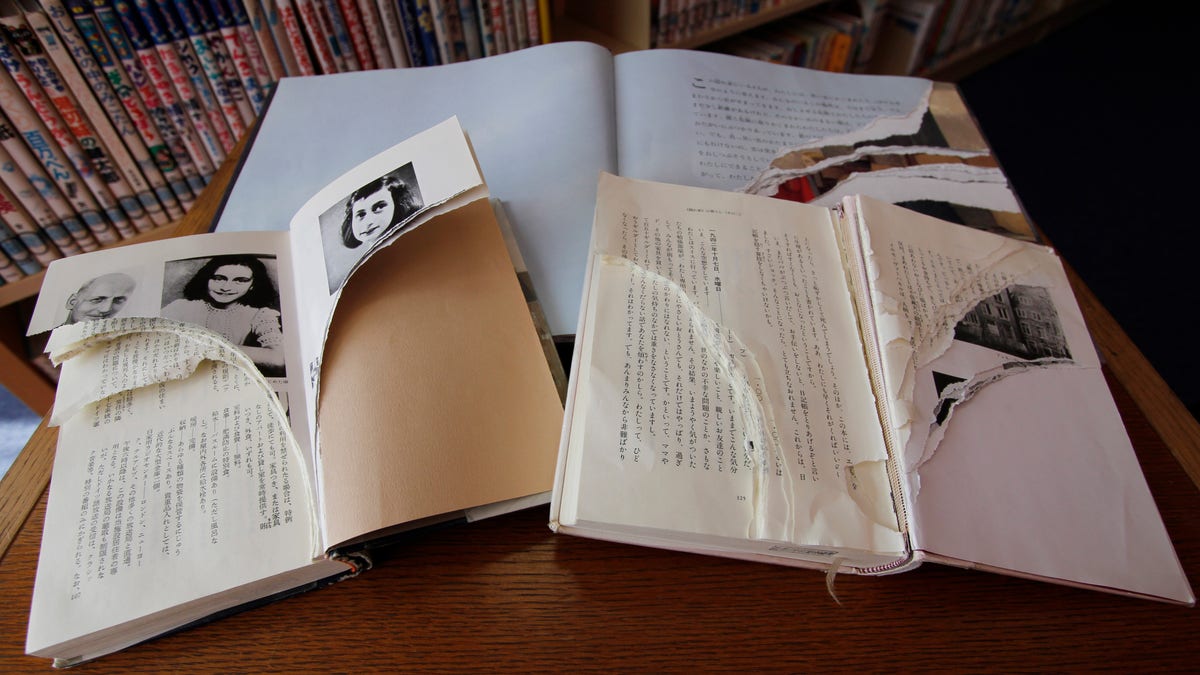
Feb. 21, 2014. Ripped copies of Anne Frank's 'Diary of a Young Girl' and related books are shown at Shinjuku City Library in Tokyo. (AP2014)
Anne Frank's "The Diary of a Young Girl" and scores of books about the young Holocaust victim have been vandalized in Tokyo public libraries since earlier this year.
The damage was mostly in the form of dozens of ripped pages in the books. Librarians have counted at least 265 damaged books at 31 municipal libraries since the end of January.
Japan and Nazi Germany were allies in World War II, and though Holocaust denial has occurred in Japan at times, the motive for damaging the Anne Frank books is unclear. Police are investigating.
Chief Cabinet Secretary Yoshihide Suga called the vandalism "shameful" and said Japan would not tolerate such acts.
The New York-based Anti-Defamation League, a civil rights group fighting anti-Semitism, praised Suga's remarks.
The league's national director, Abraham Foxman, called for a full investigation and asked Japan's government " to carefully consider if this act of disrespect for the memory of the millions of Jewish victims who lost their lives in the Holocaust requires a new look at educational initiatives regarding the Holocaust and anti-Semitism."
He said that while there has been some history of "journalistic and literary anti-Semitism in Japan, these kinds of incidents are in fact quite rare."
In the Nakano district libraries, the vandals apparently damaged the books while unnoticed inside reading rooms, according to city official Mitsujiro Ikeda.
"Books related to Ms. Anne Frank are clearly targeted, and it's happening across Tokyo," he said Friday. "It's outrageous."
At another library, all the books that were damaged could have been found using the keywords "Anne Frank" in an online database.
At least one library has moved Anne Frank-related books behind the counter for protection, though they can still be checked out.
Anne Frank wrote her diary over the two years she and her family hid in a concealed apartment in Nazi-occupied Netherlands during World War II. After her family was betrayed and deported, she died in a German concentration camp at age 15 in 1945.
Her father survived and published her diary, which has become the most widely read document to emerge from the Holocaust.
The Simon Wiesenthal Center, a U.S.-based Jewish human rights organization, issued a statement calling the vandalism a hate campaign and urging authorities to step up efforts to find those responsible.













































